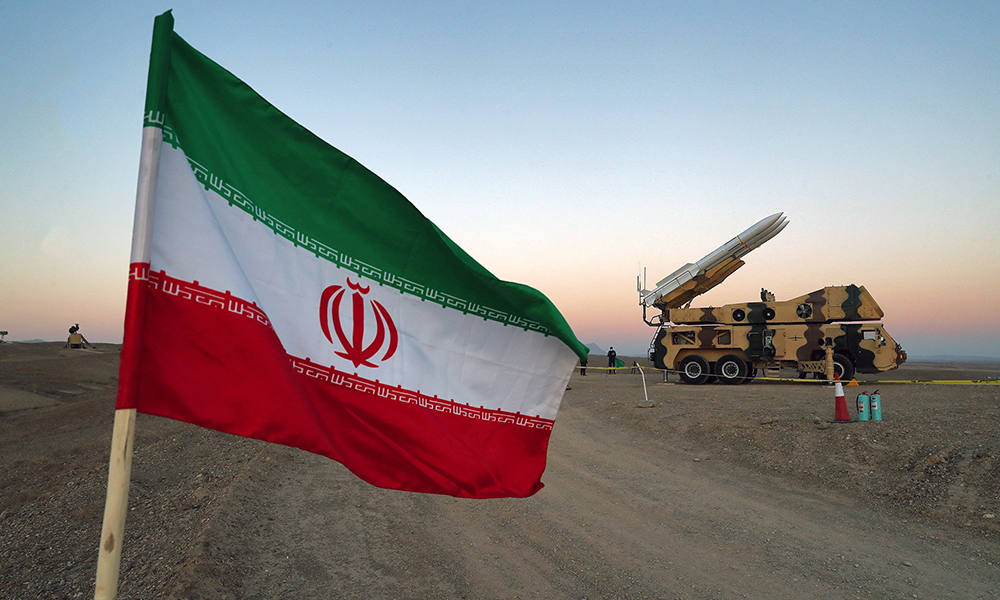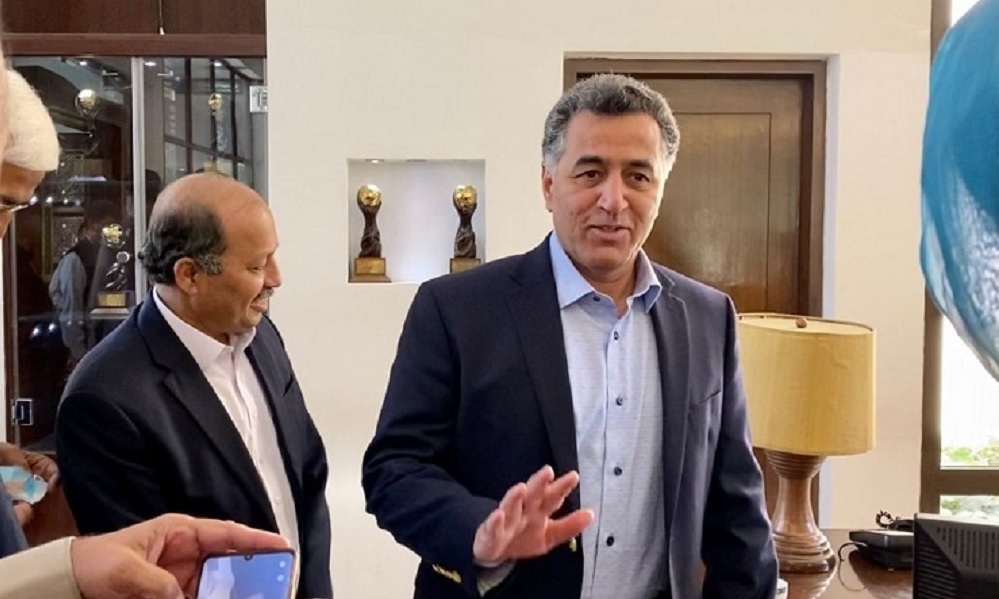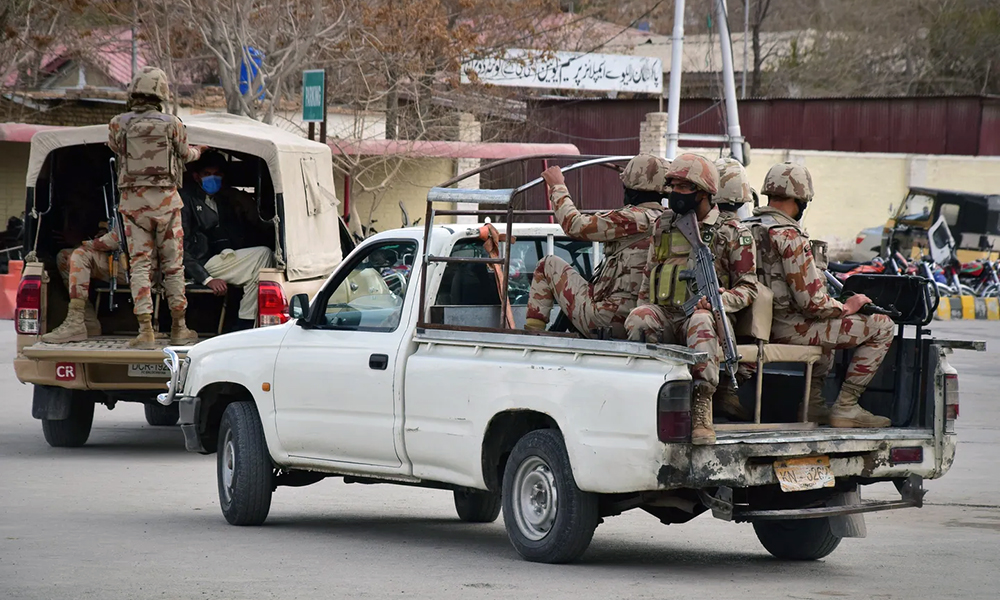Regional
Only Gaza ceasefire will delay retaliation, say Iranian officials
In Israel, many observers believe a response is imminent after Supreme Leader Ayatollah Ali Khamenei said Iran would “harshly punish” Israel for the strike in Tehran.

Only a ceasefire deal in Gaza stemming from hoped-for talks this week would hold Iran back from direct retaliation against Israel for the assassination of Hamas leader Ismail Haniyeh on its soil, three senior Iranian officials said.
Iran has vowed a severe response to Haniyeh’s killing, which took place as he visited Tehran late last month and which it blamed on Israel. Israel has neither confirmed or denied its involvement. The U.S. Navy has deployed warships and a submarine to the Middle East to bolster Israeli defenses.
One of the sources, a senior Iranian security official, said Iran, along with allies such as Hezbollah, would launch a direct attack if the Gaza talks fail or it perceives Israel is dragging out negotiations. The sources did not say how long Iran would allow for talks to progress before responding.
With an increased risk of a broader Middle East war after the killings of Haniyeh and Hezbollah commander Fuad Shukr, Iran has been involved in intense dialogue with Western countries and the United States in recent days on ways to calibrate retaliation, said the sources, who all spoke on condition of anonymity due to the sensitivity of the matter.
In comments published on Tuesday, the U.S. ambassador to Turkey confirmed Washington was asking allies to help convince Iran to de-escalate tensions. Three regional government sources described conversations with Tehran to avoid escalation ahead of the Gaza ceasefire talks, due to begin on Thursday in either Egypt or Qatar.
“We hope our response will be timed and executed in a way that does not harm a potential ceasefire,” Iran’s mission to the U.N. said on Friday in a statement. Iran’s foreign ministry on Tuesday said calls to exercise restraint “contradict principles of international law.”
Iran’s foreign ministry and its Revolutionary Guards Corps did not immediately respond to questions for this story. The Israeli Prime Minister’s Office and the U.S. State Department did not respond to questions.
“Something could happen as soon as this week by Iran and its proxies… That is a U.S. assessment as well as an Israel assessment,” White House spokesperson John Kirby told reporters on Monday.
“If something does happen this week, the timing of it could certainly well have an impact on these talks we want to do on Thursday,” he added.
At the weekend, Hamas cast doubt on whether talks would go ahead. Israel and Hamas have held several rounds of talks in recent months without agreeing a final ceasefire.
In Israel, many observers believe a response is imminent after Supreme Leader Ayatollah Ali Khamenei said Iran would “harshly punish” Israel for the strike in Tehran.
“We are closely following what happens in Beirut and Tehran, and are working to thwart any (possible) threat, while also preparing a variety of offensive options,” Israeli Defence Minister Yoav Gallant said during a visit to an intelligence base in Northern Israel.
“We are determined to fulfill our mission – we must ensure the safe return of (Israel’s northern) residents to their homes, once we ensure that Hezbollah withdraws north of the Litani River.”
Iran’s regional policy is set by the elite Revolutionary Guards, who answer only to Khamenei, the country’s top authority. Iran’s relatively moderate new president Masoud Pezeshkian has repeatedly reaffirmed Iran’s anti-Israel stance and its support for resistance movements across the region since taking office last month.
Meir Litvak, a senior researcher at Tel Aviv University’s Alliance Center for Iranian Studies, said he thought Iran would put its needs before helping its ally Hamas but that Iran also wanted to avoid a full-scale war.
“The Iranians never subordinated their strategy and policies to the needs of their proxies or protégées,” Litvak said. “An attack is likely and almost inevitable but I don’t know the scale and the timing.”
Iran-based analyst Saeed Laylaz said the Islamic Republic’s leaders were now keen to work towards a ceasefire in Gaza, “to obtain incentives, avoid an all-out war and strengthen its position in the region.”
Laylaz said Iran had not previously been involved in the Gaza peace process but was now ready to play “a key role.”
Iran, two of the sources said, was considering sending a representative to the ceasefire talks. However, they said the representative would not directly attend the meetings but would engage in behind-the-scenes discussions “to maintain a line of diplomatic communication” with the United States while negotiations proceed.
Iran’s mission to the United Nations in New York told Reuters that Tehran would not have a representative present on the sidelines of the ceasefire talks. Officials in Washington, Qatar and Egypt did not immediately respond to questions about whether Iran would play an indirect role in talks.
Two senior sources close to Lebanon’s Hezbollah said Tehran would give the negotiations a chance but would not give up its intentions to retaliate.
A ceasefire in Gaza would give Iran cover for a smaller “symbolic” response, one of the sources said.
Israel launched its assault on Gaza after Hamas fighters stormed into southern Israel on Oct. 7, killing 1,200 people, mostly civilians, and capturing more than 250 hostages, according to Israeli tallies.
Since then, nearly 40,000 Palestinians have been killed in the Israeli offensive in Gaza, according to the health ministry.
Iran has not publicly indicated what would be the target of an eventual response to the Haniyeh assassination. Reuters
On April 13, two weeks after two Iranian generals were killed in a strike on Tehran’s embassy in Syria, Iran unleashed a barrage of hundreds of drones, cruise missiles and ballistic missiles towards Israel, damaging two airbases. Almost all of the weapons were shot down before they reached their targets.
“Iran wants its response to be much more effective than the April 13 attack,” said Farzin Nadimi, senior fellow with the Washington Institute for Near East policy.”
Nadimi said such a response would require “a lot of preparation and coordination” especially if it involved Iran’s network of allied armed groups opposing Israel and the United States across the Middle East, with Hezbollah the senior member of the so-called “Axis of Resistance,” that along with Iraqi militias and Yemen’s Houthis have harried Israel since Oct. 7.
Two of the Iranian sources said Iran would support Hezbollah and other allies if they launched their own responses to the killing of Haniyeh and Hezbollah’s top military commander, Fuad Shukr, who died in a strike in Beirut the day before Haniyeh was killed in Tehran.
The sources did not specify what form such support could take.
Regional
Pakistan’s ex-spy chief jailed for 14 years in rare military rebuke

A military court in Pakistan jailed former spy chief Faiz Hamid for 14 years on four charges including interference in politics, the army said on Thursday, in a rare conviction of a once-powerful general in the South Asian nation.
Hamid, in custody and under trial since August last year, was the chief of Pakistan’s powerful Inter-Services Intelligence agency from 2019 to 2021 under jailed former Prime Minister Imran Khan, and the two were considered close allies.”The accused was tried on four charges,” the military said in a statement, Reuters reported.
The charges ranged from engaging in political activities and violating the Official Secrets Act in a way detrimental to safety and state interest to misuse of authority and resources as well as causing wrongful loss to individuals, it added.
TIES TO JAILED FORMER PM IMRAN KHAN
The former general was found guilty on all the charges, the military said, without detailing the incidents. His conviction followed “lengthy and laborious legal proceedings”, it added, and Hamid has a right of appeal.
He also faces a separate investigation of his role in May 2023 attacks by thousands of Khan’s supporters on scores of military installations and offices to protest against the arrest of the 72-year-old former cricket star.
Information Minister Attaullah Tarar said Hamid had crossed “red lines” and acted as an advisor to Khan’s party to try to create chaos in the country.
Hamid’s lawyers or family could not be reached for comment. Khan’s PTI party did not immediately respond to a Reuters request for comment.
Khan has been in jail since August 2023.
Khan and nearly 150 of his party leaders and supporters have already been indicted by an anti-terrorism court on charges of inciting the attacks that also targeted military headquarters in the garrison city of Rawalpindi.
Khan and his associates deny the charges.
Hamid’s close ties to Khan, who blames the military for ousting him from power in 2022, were a source of tension between the cricketer-turned-politician and the military.
The military, which has directly ruled the nation of 241 million for more than three decades of its 77-year independent history, plays a big role in making or breaking governments.
Regional
Six Pakistani soldiers killed in TTP attack in Kurram District
Islamabad has accused TTP fighters of using Afghan territory to stage attacks inside Pakistan, a claim Kabul denies, insisting that Pakistan’s security problems are internal matters.

Six Pakistani soldiers were killed and four others injured when militants attacked a security checkpoint in northwest Pakistan’s Kurram district, officials confirmed on Tuesday. The Tehreek-e-Taliban Pakistan (TTP) claimed responsibility for the assault.
The attack took place in the Manato area late Monday afternoon, according to a police officer at the district’s emergency control room. A government official, speaking on condition of anonymity, told AFP that two militants were also killed during the exchange of fire.
Security forces later identified one of the dead militants as local TTP commander Usman Khyberi.
The incident comes amid heightened tensions between Pakistan and Afghanistan, as both sides struggle to maintain a fragile calm following deadly border clashes in October—the worst since the Islamic Emirate took control of Kabul in 2021.
Sporadic skirmishes have continued, including heavy exchanges of fire last week that left at least five people dead.
Islamabad has accused TTP fighters of using Afghan territory to stage attacks inside Pakistan, a claim Kabul denies, insisting that Pakistan’s security problems are internal matters.
Efforts to broker a lasting truce have so far failed. Three rounds of peace talks—facilitated by Qatar, Türkiye, and Saudi Arabia—have not produced a breakthrough.
Regional
Putin questions US punishing India for buying Russian oil
Hours earlier, Modi received Putin at the airport in Delhi, a rare gesture underlining the warm ties between the leaders.

Russian President Vladimir Putin challenged heavy U.S. pressure on India not to buy Russian fuel if the U.S. could do so as he began a two-day state visit, where he was embraced on arrival by Indian Prime Minister Narendra Modi.
Putin spoke in comments to Indian broadcaster India Today, aired hours after landing in New Delhi for a visit during which both countries are seeking to boost mutual trade and expand the variety of items in transactions.
New Delhi and Moscow have strong ties going back to the days of the former Soviet Union, and Russia has been the main source of arms for India for decades. India has also emerged as the top buyer of seaborne Russian oil despite Western sanctions imposed after Moscow launched its invasion of Ukraine in February 2022.
India’s crude imports, however, are set to hit a three-year low this month following a punitive U.S. tariff on Indian goods and a tightening of sanctions on Russia, as U.S. President Donald Trump’s administration says India’s purchases of cheap Russian oil help finance Moscow’s war in Ukraine.
“The United States itself still buys nuclear fuel from us for its own nuclear power plants. That is also fuel,” Putin told India Today.
“If the U.S. has the right to buy our fuel, why shouldn’t India have the same privilege? This question deserves thorough examination, and we stand ready to discuss it, including with President Trump,” he said.
India has said Trump’s tariffs are unjustified and unreasonable and pointed at ongoing U.S. trade with Moscow. The U.S. and European Union continue to import billions of dollars worth of Russian energy and commodities, ranging from liquefied natural gas to enriched uranium.
“There is a certain decline in overall trade turnover during the first nine months of this year,” Putin said when asked if Indian oil purchases had fallen under pressure from the West.
“This is just a minor adjustment. Overall, our trade turnover stands almost at the same level as before.”
He added: “Trade in petroleum products and crude oil … Russian oil, is running smoothly in India.”
Asked how India and Russia should deal with Trump and his tariffs, Putin said the U.S. President has advisers who believe that implementing such tariff policies ultimately benefits the U.S. economy. “We hope that, in the end, all violations of World Trade Organization regulations will be rectified,” he said.
Hours earlier, Modi received Putin at the airport in Delhi, a rare gesture underlining the warm ties between the leaders.
They embraced on a red carpet on the tarmac and then drove away in the same vehicle for a private dinner hosted by Modi.
Senior Russian ministers and a large Russian business delegation were in New Delhi for Putin’s visit and the two leaders will hold summit talks on Friday when they are expected to announce a raft of deals.
“Delighted to welcome my friend, President Putin to India. India-Russia friendship is a time-tested one that has greatly benefited our people,” Modi posted on X ahead of the dinner.
India and Russia aim to raise two-way trade to $100 billion by 2030. Their commerce rose more than five-fold from about $13 billion in 2021 to near $69 billion in 2024–25, almost entirely driven by Indian energy imports.
Bilateral trade eased to $28.25 billion in April–August 2025, reflecting a decline in crude oil imports.
At the same time, India is looking for new destinations to increase exports of its goods hit by the punishing 50% tariff imposed by Trump.
Russia wants to import more Indian goods to balance bilateral trade, which is currently heavily skewed towards energy, Deputy Kremlin Chief of Staff Maxim Oreshkin told a business conference in New Delhi earlier on Thursday.
Indian Trade Minister Piyush Goyal said New Delhi wants to diversify exports to Russia and increase sales of automobiles, electronics goods, data-processing equipment, heavy machinery, industrial components, textiles, and foodstuffs.
-

 Sport4 days ago
Sport4 days agoILT20: Desert Vipers edge Gulf Giants in historic super over thriller
-

 Latest News2 days ago
Latest News2 days agoMuttaqi: Afghanistan’s progress requires both religious and modern education
-

 Regional4 days ago
Regional4 days agoSix Pakistani soldiers killed in TTP attack in Kurram District
-

 Business4 days ago
Business4 days agoTrade bodies warn almost 11,000 Afghan transit containers stuck at Karachi port
-

 World4 days ago
World4 days agoPowerful 7.6 earthquake hits northern Japan, tsunami warnings issued
-

 Latest News3 days ago
Latest News3 days agoTrump calls Afghanistan a ‘hellhole’ country as US expands immigration restrictions
-

 Sport5 days ago
Sport5 days agoSorkh Poshan Khafi defeats Sarsabz Yashlar 4-0 in Afghanistan Champions League
-

 Sport3 days ago
Sport3 days agoCommanding wins for Arman FC and Sarsabz Yashlar in Afghanistan Champions League
























